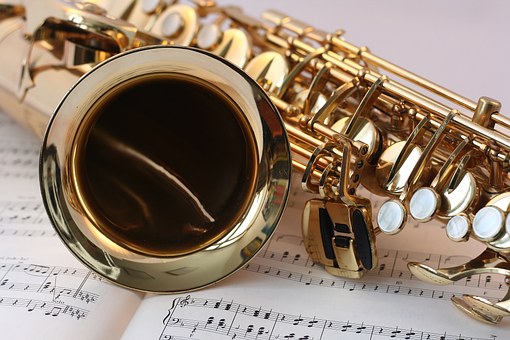
 Stimulates the brain hormone oxytocin: Music is known to trigger the formation of various chemicals in the brain. Oxytocin is one such brain hormone. This hormone is also known as the cuddle hormone, moral molecule, and trust molecule. This hormone plays a vital role in building trust and increasing bonding between people. Several kinds of research have proved that listening to music enhances the formation of oxytocin. A mother singing a lullaby to her baby, playing music in a group or enjoying live music concerts triggers the formation of oxytocin which further enables individuals to trust each and other and also helps them in building a bond of empathy and trust.
Increased brain connectivity: Many a time it happens that when we listen to a particular song, it gives us a nostalgic feeling and takes us down to our memory lane. Researchers are working to understand this connection if music with our memory and thoughts. Various researches have shown that the connectivity between the auditory section of the brain and the section associated with emotions and memories gets enhanced while listening to preferred songs. It has been found that the parts of the brain associated with spatial coordination, motor, and auditory skills are found to be larger in case of musicians. Similar was the case for corpus callosum. It acts as a bridge between the two hemispheres of the brain. It consists of nerve fibers which are responsible for transferring information between these two parts of the brain. Its larger size implies better communication between the left and right side of the brain in other words better connectivity.
Music as a painkiller: In many cases, music therapy is beneficial in reducing pain. Patients undergoing music therapy have reported experiencing less pain as compared to other patients.
Music helps in Neuroplasticity: In case of any injury or damage, our brain forms new neural connections to carry out its functions under the prevailing situation. This turns out to be very helpful in case of brain injury. It has been proved that listening to music or playing any instrument triggers the formation of new nerve cells. In a study, it has been found that patients were able to reconnect o their memories when they were exposed to popular music. Neuroplasticity enables our brain to find an alternate pathway to reach our emotions and memories.
Conclusion:
Music has been part of human life since ancient times. It has been used as a tool to reach god. Good music uplifts the mood and rejuvenates our soul. It has been said that there is no age for learning music. Both kids, as well as, adults can take music lessons to enjoy various benefits of music. In kids, music lessons would help in their brain development. It would also help in boosting their confidence and self-esteem. Adults can use music lessons to overcome stress, anxiety, and depression. Nowadays, music lessons for various instruments are available on the internet. You just have to select and buy the instrument you want to learn, and you can learn it via the internet that too at your choice of place and time.
Stimulates the brain hormone oxytocin: Music is known to trigger the formation of various chemicals in the brain. Oxytocin is one such brain hormone. This hormone is also known as the cuddle hormone, moral molecule, and trust molecule. This hormone plays a vital role in building trust and increasing bonding between people. Several kinds of research have proved that listening to music enhances the formation of oxytocin. A mother singing a lullaby to her baby, playing music in a group or enjoying live music concerts triggers the formation of oxytocin which further enables individuals to trust each and other and also helps them in building a bond of empathy and trust.
Increased brain connectivity: Many a time it happens that when we listen to a particular song, it gives us a nostalgic feeling and takes us down to our memory lane. Researchers are working to understand this connection if music with our memory and thoughts. Various researches have shown that the connectivity between the auditory section of the brain and the section associated with emotions and memories gets enhanced while listening to preferred songs. It has been found that the parts of the brain associated with spatial coordination, motor, and auditory skills are found to be larger in case of musicians. Similar was the case for corpus callosum. It acts as a bridge between the two hemispheres of the brain. It consists of nerve fibers which are responsible for transferring information between these two parts of the brain. Its larger size implies better communication between the left and right side of the brain in other words better connectivity.
Music as a painkiller: In many cases, music therapy is beneficial in reducing pain. Patients undergoing music therapy have reported experiencing less pain as compared to other patients.
Music helps in Neuroplasticity: In case of any injury or damage, our brain forms new neural connections to carry out its functions under the prevailing situation. This turns out to be very helpful in case of brain injury. It has been proved that listening to music or playing any instrument triggers the formation of new nerve cells. In a study, it has been found that patients were able to reconnect o their memories when they were exposed to popular music. Neuroplasticity enables our brain to find an alternate pathway to reach our emotions and memories.
Conclusion:
Music has been part of human life since ancient times. It has been used as a tool to reach god. Good music uplifts the mood and rejuvenates our soul. It has been said that there is no age for learning music. Both kids, as well as, adults can take music lessons to enjoy various benefits of music. In kids, music lessons would help in their brain development. It would also help in boosting their confidence and self-esteem. Adults can use music lessons to overcome stress, anxiety, and depression. Nowadays, music lessons for various instruments are available on the internet. You just have to select and buy the instrument you want to learn, and you can learn it via the internet that too at your choice of place and time.
Be the first to post comment!